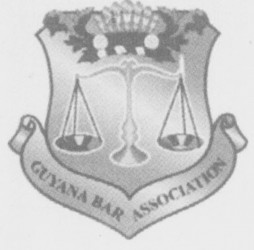This fortnightly column by the Guyana Bar Association aims to inform, to share, and to engage the public on legal issues. Its aim is not to offer legal advice on specific matters affecting citizens. For advice on any legal matter in which you are involved, we recommend that you consult an attorney-at-law, or one of the Legal Aid centres.
The swift exercise by His Excellency President David Granger of his power to grant presidential pardons to a relatively large number of convicts has been the subject of much discussion. The rationale behind the granting of the pardons is posited as being a preference for the rehabilitation of young offenders rather than their punishment. Rehabilitation and punishment are the two goals of, and sometimes conflicting approaches to, sentencing practice. It is widely accepted by most democracies that rehabilitation should take priority over punishment and therefore the President’s bold initiative can be seen as a step in this direction. The realisation of the broader objective, however, can only be accomplished within a structured framework.

Persons who are addicted to narcotics and alcohol will more often than not remain addicted unless there is some intervention. It is the responsibility of every decent society to provide rehabilitation services and other support systems to all addicts. In Guyana, there is a paucity of accessible treatment centres and so the non-governmental Salvation Army Drug Rehabilitation Centre at Water Street, Kingston, Georgetown stands out as one of the few such centres.
A visit to police stations across the country, and the Police Headquarters and Customs Anti-Narcotic Unit’s Headquarters in Georgetown will reveal that hundreds of millions of dollars’ worth of motor vehicles lie rotting away. If sufficient use had been made of the legislative framework which existed since the Narcotic Drug and Psychotropic Substances (Control) Act was passed in 1988, we would have had Rehabilitation Centres all across Guyana.
A holistic examination of the Act reveals that within this piece of legislation there exists the prefect framework for the rehabilitation of offenders, young and old. A substantial part of the Act is devoted to the rehabilitation of offenders under which the Minister of Health is empowered to set up Rehabilitation Centres, Rehabilitation Funds and Advisory Councils for the rehabilitation of narcotic addicts. The Courts are empowered in appropriate circumstances to commit addicts to a Rehabilitation Centre as opposed to committing an offender to our penal institutions.
The Act contemplates that a wide range of immovable and movable assets (held in or out of Guyana), of convicted persons, can be forfeited and later utilized for the very purpose of setting up these Rehabilitation Centres. The procedure is that after conviction, the court, on its own motion or on the application by the Director of Public Prosecutions, may initiate steps for the forfeiture of the assets. After the assets are sold, a portion is available to the Ministry of Health’s Rehabilitation Fund via the Finance Ministry, and these monies are earmarked for the establishment of Rehabilitation Centres.
The Guyana Bar Association hopes that in the not too distant future, joint advantage will be taken by our courts, investigators, the prosecuting authorities, the Ministry of Health and the Government as a whole, to set up and invigorate the legislative and other framework to help substance abusers.
We recognise that not every abuser will reform. But in cases of success, which we think will be many, the country will enjoy the double benefit of saving huge sums of money while giving our errant youths another chance to become productive citizens.





